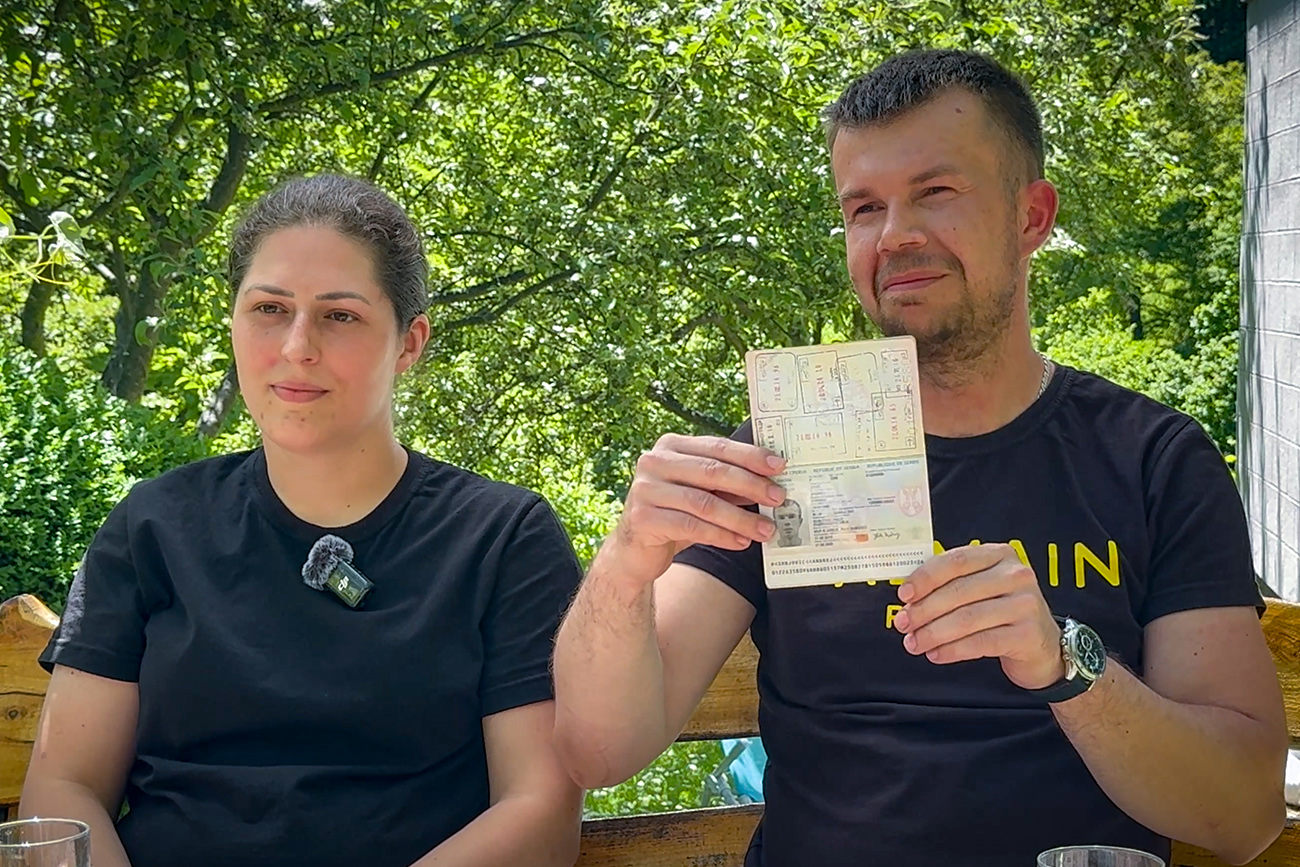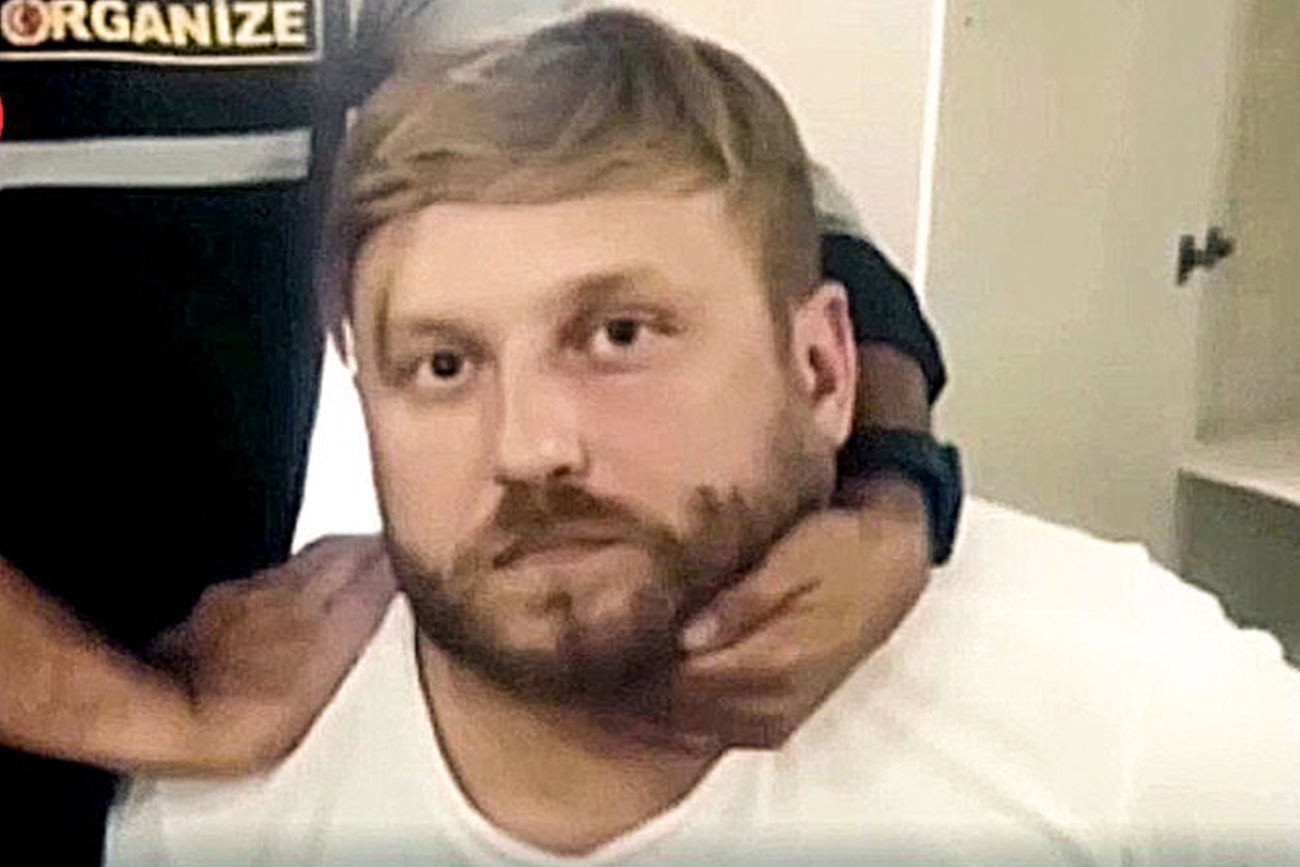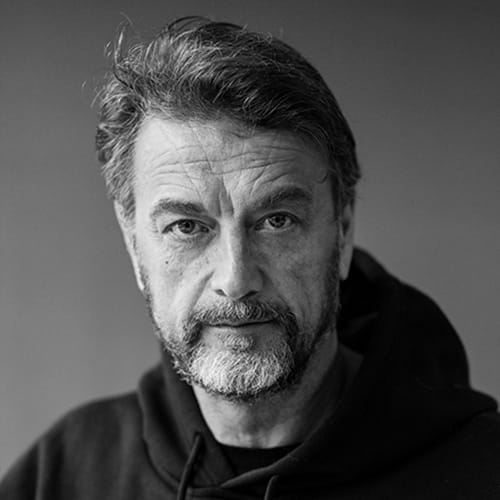For years, Andrej Jović has faced repeated ordeals at border crossings across the Balkans — through no fault of his own. Each time his passport is scanned, the electronic system flags him as a suspected murderer wanted on an Interpol red notice.
Crossing the border has become a nightmare for Jović and his family: with waits lasting up to four hours, Andrej being taken aside for questioning in separate rooms, and their luggage repeatedly searched… On one occasion, he was even forced to pay a hefty fine for a traffic offence committed abroad by his unwanted double.
In 2021, Montenegrin national Radoje Živković exploited Jović’s details to illegally obtain a Bosnian passport, allowing him to travel under a false identity while carrying out deadly missions. A year later, Živković — a member of the Kavač cartel — orchestrated the assassination of Jovan Vukotić, leader of the rival Škaljari clan, in Istanbul. He was soon arrested and, earlier this year, sentenced to life in prison. Turkish police found identity documents bearing the name Andrej Jović in Živković’s possession.
Although the burden should have been lifted from Jović’s shoulders after the arrest of the man who had stolen his identity, it took six more gruelling border checks before he finally felt any sense of relief. He has lived in Subotica for the past thirty years and has never even applied for a Bosnian passport. Reluctant to speak publicly about his ordeal, Jović remained silent until he read a report by the Centre for Investigative Reporting (CIN) on the misuse of Bosnian passports and realised he wasn’t the only one suffering due to identity theft. Responding to an invitation to visit our newsroom in Sarajevo, Andrej and his wife Tatjana finally mustered the courage to cross the border again in early June and, for the first time, did so without incident. But peace of mind still eludes them, as their safe passage has not been officially guaranteed.
Interpol keeps quiet
The NCB Interpol office in Sarajevo refused to provide CIN with information regarding the status of the arrest warrant for Živković, stating that only the Secretariat General of this police network in Lyon determines which warrants are made publicly available on their website. The warrant for Živković has not been published.
“This has been going on for three to four years, and we still have no resolution. We simply don’t know what to do. We’re young, we don’t have children yet, and we want to travel. But how? How can I know if he’ll be arrested somewhere, or if he might be killed by mistake? That could happen. There have been cases like that, haven’t there?” says Tatjana.
The 39-year-old adds that he is deeply concerned for his safety and reputation. He explains that he has faced serious problems every time he tried to leave Serbia, and later when attempting to enter Turkey, Bosnia and Herzegovina, or Montenegro.
Jović’s troubles began four years ago. Radoje Živković, a resident of Nikšić who was wanted by Interpol, needed legitimate travel documents under a false identity to travel without fear of arrest. According to reports from the RS Ministry of Interior’s Department for Organised and Serious Crime, in the summer of 2021, he hired a group of former Banja Luka police officer Dalibor Ćurlik to assist him in obtaining the necessary documents.
Živković forged a Serbian ID card in the name of Andrej Jović, then—with the help of the group from Banja Luka—obtained a Bosnian citizenship certificate and proof of residence for Jović. Ćurlik then took Živković to the Banja Luka Police Department to assist at the office responsible for issuing ID cards and passports.
Surveillance cameras inside the police building recorded them filling out the passport application. Živković was also filmed having his photograph taken and fingerprints taken for the new documents. In early July 2021, he received the passport, and by the end of the month, he had flown to Istanbul under the name Andrej Jović. He was arrested there in September the following year, accused of organising a group that had been tracking and ultimately assassinating Jovan Vukotić.

No Relief on the River or at Ostrog’s Sanctuary
Unaware of the trouble he was in due to someone else’s wrongdoing, the real Jović went rafting in Bosnia and Herzegovina in 2022.
“Upon handing over my passport, the Serbian border officer discovered there was an Interpol warrant and immediately proceeded with a search,” Andrej recalls.
Tatjana explains that besides the two of them, her mother and another man were also in the car: “They took him out with his suitcase for a search.”
They were released after an hour, with the authorities insisting it was just a routine check. However, moments later at the Bosnian border crossing, they were presented with new details. The Bosnian border officer asked if they had any connection with Radoje Živković.
“I didn’t know what it was about. Then we checked on Google who Radoje Živković was and discovered he was actually a murderer and criminal,” Andrej said.
Their next trip was to Montenegro’s Ostrog Monastery, one of the largest Orthodox shrines in the Balkans. And once again, the same scenes played out at the border.
Andrej recalled that they had apologised and explained they needed to verify a warrant that had appeared in the system, and that he would have to wait aside until the matter was resolved… Then came the search, the questioning about his occupation.
“I was angry because I knew I hadn’t done anything wrong, and on top of that, everyone around me was having problems because of it. It’s shameful,” said the man from Subotica.
The following year, they decided to spend their holiday in Turkey. Hoping for a good time, their plans were dashed when his passport again triggered trouble during border control.
“We landed at Antalya airport and went through the usual process. I passed passport control first, and he was right behind me. Then I noticed the officer making a phone call. Suddenly, they took him away through that big hall to the other side. Two officers were escorting him…I just stood there, watching, with no one to ask, not knowing what was happening. I didn’t know if he was going to be deported, arrested, or taken somewhere else. I started running after him, and then they took me away too,” Tatjana recalled.
Radoje’s Mess, Andrej Foots the Bill
Andrej says he was held for five hours. He reveals that after his arrest, he was also ordered to pay a fine for a parking violation in Turkey from the previous year, amounting to over 100 euros.
“Although I had never been to Turkey before and had nothing to do with the offence, I was told I had two options: pay the fine or face immediate deportation back to Serbia.”
This man from Subotica says it was only then that he realised someone had stolen his identity and obtained travel documents in his name.
“They dictated the details to us — father’s name, mother’s name, personal ID number — and everything matched their photocopy,” Andrej explains.
“So all the information is mine except the photo, which is his… What’s worse, we even look a bit alike,” he adds, stressing there was no way to prove it wasn’t him.
In the end, he had to pay the fine to avoid losing his holiday. After their experience in Turkey, they decided to give up on holidays abroad, even though they had dreamed of travelling to Greece.
However, Andrej still had to cross the border last year. He received an invitation for a job interview in Bijeljina with a German company. Unfortunately, due to border issues, he was late for the interview.
“We set off for Bijeljina, making sure to leave about three hours earlier than usual because we expected problems,” he explained.
And he was right. At the border, the same issue with the warrant arose. The same situation all over again.
CIN’s investigative journalists have discovered that at least 60 members of the Kavač, Škaljari, Šarić, and “Amerika” clans, along with other criminal organisations from Serbia, Montenegro, Bulgaria, Croatia, and Slovenia, obtained legitimate Bosnian passports. All of them abused the personal data of Bosnian citizens, who have since suffered years of consequences through border troubles and police investigations in their home countries.

(Photo: Turkish Police)
Journalists from CIN have identified three more Bosnian citizens, alongside Jović, whose identities were stolen and used in Brčko to issue passports to members of the Škaljari clan. These individuals have also experienced difficulties at border crossings and have been summoned for police questioning.
Their families originally came from Bijelo Bučje, a village near Teslić, but resettled in Bački Brestovac in Serbia during the 1990s, where they established cattle farms. Although they retained Bosnian citizenship, none of them ever applied for Bosnian travel documents.
One of them, Predrag Đurđević, says he has never travelled abroad, partly out of fear of facing problems at the border.
“You know how it is — proving your innocence is uncomfortable, and you never know where you might end up,” said Đurđević.
In 2020, his identity was stolen by Ratko Živković, wanted in Serbia for murder, assault, and drug trafficking, to forge a passport. Predrag’s identity was needed because an international arrest warrant had been issued for him.
The worst border ordeal is faced by Predrag’s relative, Đurađ Trivunović, also a cattle farmer from Bačka. His personal data was misused to obtain a Bosnian passport for Dejan Pavlović, a member of the Škaljari clan from Belgrade and a convicted drug trafficker.
Trivunović experienced a major inconvenience for the first time at the end of August 2022, when he tried to enter Bosnia and Herzegovina with his wife’s family at the Šamac border crossing.
“They told me to wait for the control, so I waited,” says Trivunović, adding that a border police officer then approached him and informed him that he was on Interpol’s red notice.
After a two-hour check, it was confirmed that Đurađ was not the criminal the police were after, and they were allowed to enter Bosnia and Herzegovina without further issues. However, two days later, on their return to Serbia, he faced difficulties again:
“And it was the same again. When I handed over my passport, it turned red once more.”
After returning to Serbia, he contacted the criminal police in Brčko to report the issue, and says they promised him that he would no longer be detained at the border.
“They told me, ‘We’ve removed you from that list, and you won’t have any problems anymore.’ And I accepted that. But a year later, I travelled again—and it happened all over again,” Trivunović told journalists.
All the Bosnian citizens involved sought help from police and judicial authorities in both Bosnia and Serbia, but received none. Jović said that the Serbian police even advised him not to carry his identity documents, warning that he would be arrested if the warrant was activated.







